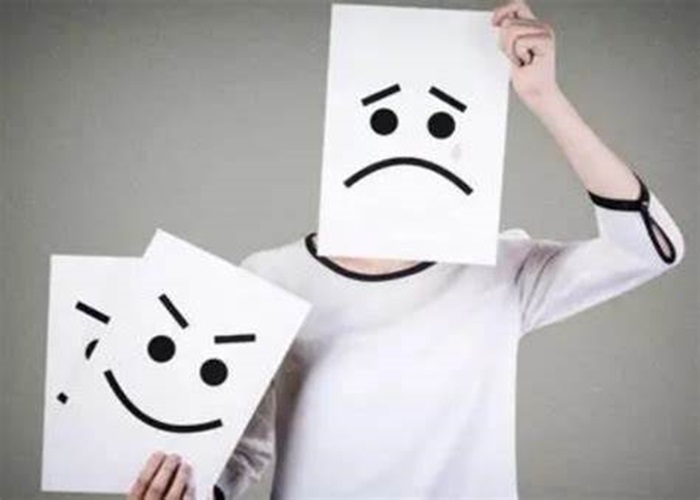Depression is a complex and often misunderstood mental health condition that can affect individuals in various ways. It is not simply a case of feeling sad; it is a persistent state that can have a significant impact on a person’s life. Recognizing the signs of depression is crucial for early intervention and seeking appropriate help. In this article, we will explore 10 signs that may indicate you are depressed.
10 Signs You May Be Suffering From Depression
1.Persistent Sadness or Low Mood
One of the most common signs of depression is a persistent feeling of sadness or low mood that lasts for an extended period. You may find yourself feeling down most of the day, nearly every day, and it doesn’t seem to lift even with positive events or changes in circumstances. This sadness can be overwhelming and may interfere with your ability to enjoy life and engage in activities you once found pleasurable.
2.Loss of Interest or Pleasure
Another hallmark sign is a significant loss of interest or pleasure in activities that you used to love. Whether it’s hobbies, socializing with friends, or engaging in sports, you may suddenly find that these things no longer bring you joy. You may start to withdraw from these activities and prefer to be alone, even though isolation only exacerbates the feelings of depression.
3.Changes in Sleep Patterns
Depression can disrupt your sleep in various ways. Some people may experience insomnia, finding it difficult to fall asleep or stay asleep throughout the night. Others may oversleep, feeling constantly tired and lacking energy. These irregular sleep patterns can further contribute to feelings of fatigue, irritability, and a general sense of malaise.
4.Changes in Appetite and Weight
Similar to sleep, appetite can also be affected by depression. You may notice a significant decrease or increase in your appetite. Some individuals lose weight due to a lack of interest in eating, while others may gain weight as they turn to food for comfort. These changes in appetite and weight can have both physical and psychological consequences, further impacting your self-esteem and overall well-being.
5.Fatigue and Lack of Energy
Feeling constantly tired and lacking the energy to perform even simple tasks is a common symptom of depression. You may find it difficult to get out of bed in the morning, have trouble concentrating at work or school, and lack the motivation to engage in any physical or mental activity. This fatigue is not relieved by rest and can make you feel as if you are in a perpetual state of exhaustion.
6.Difficulty Concentrating and Making Decisions
Depression can also impair your cognitive abilities, making it hard to concentrate, remember things, or make decisions. You may find it challenging to focus on conversations, read a book, or complete work assignments. When faced with even simple choices, you may feel indecisive and overwhelmed, further adding to your stress and feelings of inadequacy.
7.Feelings of Worthlessness or Guilt
Those with depression often have negative thoughts about themselves and may experience feelings of worthlessness or excessive guilt. You may constantly criticize yourself, believing that you are a failure or that you have let others down. These feelings can be intense and persistent, and may not be based on any objective reality. They can lead to a downward spiral of self-loathing and further depression.
8.Irritability and Restlessness
In addition to sadness, you may also find yourself feeling more irritable and restless. Small things that wouldn’t normally bother you may cause you to become angry or agitated. You may have trouble sitting still or feel a sense of inner restlessness, as if you can’t find peace within yourself. This irritability can affect your relationships with others and make it even more difficult to cope with daily life.
9.Physical Aches and Pains
Depression can manifest not only in emotional and mental symptoms but also in physical ones. You may experience unexplained aches and pains, such as headaches, backaches, or muscle pain. These physical symptoms may not have a clear medical cause but are often related to the stress and emotional turmoil that accompany depression. They can add to your discomfort and make it even harder to function normally.
10.Withdrawal from Social Interaction
Finally, a tendency to withdraw from social situations is a common sign of depression. You may avoid spending time with friends and family, cancel plans, and prefer to be alone. This isolation can cut you off from potential sources of support and make you feel even more alone and misunderstood. Over time, it can also strain your relationships and further contribute to your feelings of depression.
Conclusion
Recognizing these signs of depression is the first step towards getting help and reclaiming your life. If you or someone you know is experiencing several of these symptoms on a regular basis, it is important to reach out to a mental health professional. Depression is a treatable condition, and with the right support and treatment, it is possible to recover and find joy and fulfillment again. Remember, you are not alone, and there is always hope for a better tomorrow. Don’t be afraid to seek help and take the first step towards a healthier and happier you.
Related topics


